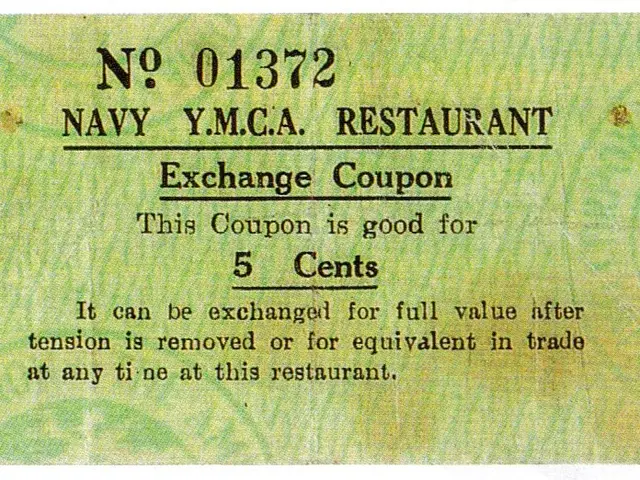Allwyn's Troubles: Broken Promises and Investigations at the National Lottery
UK Regulatory Body Assesses Strategies Against Potential National Lottery Operator Allwyn
The UK Gambling Commission has its sights set on Allwyn, the new operator of the UK's National Lottery. The Commission is currently reviewing possible disciplinary actions against the company [Link in English]. Before clinching the UK lottery in 2022, Allwyn made a series of promises, but few have seen the light of day.
Among other commitments, lottery tickets for the national lottery were supposed to drop from £2 to £1 and more money was to be pouring into charitable causes. Additionally, the digital technology of the lottery provider was to receive an overhaul to streamline ticket purchases for customers.
However, the closure of the wallet for lottery tickets remains unchanged. Moreover, there's no sign of the promised technology upgrades.
Players have also raised concerns over delayed payouts. The UKGC is now examining potential penalties for Allwyn, which could range from a warning to fines. British politicians have already called for increased scrutiny to keep tabs on the lottery provider's pledges from last year.
A History of Disputes for Allwyn
Since snagging the British gambling license to operate the National Lottery in 2022, Allwyn has been embroiled in numerous legal spats. The previous operator, Camelot, initially challenged the Gambling Commission's decision to grant the lottery license to Allwyn but eventually withdrew the lawsuit.
Technology provider International Game Technology (IGT) also levied a damages lawsuit against Allwyn. IGT previously collaborated with Camelot and faced substantial revenue losses due to the shift to Allwyn. Allwyn and IGT later formed a new technology partnership, so the lawsuit was eventually squashed.
Allwyn Stands Its Ground
Lottery provider Allwyn countered the allegations in a statement. The company maintained that it had allocated a substantial chunk of funds for technology improvements and would deliver on all its other promises:
We managed to protect and boost the contribution to charitable causes in our inaugural year, surpassing the £1.6 billion mark... Moving forward, the share of each ticket contributing to charitable causes will swell even further.- Allwyn statement, iGB*
As early as February this year, Allwyn, in partnership with technology provider Scientific Games, conducted trials for innovative scratch card terminals set to be installed in Asda supermarkets across the UK in the near future. Allwyn underlined that a larger proportion of each ticket sale would now be designated for charitable causes compared to before.
However, The Times pointed out comments in Allwyn's corporate reports, suggesting that many of its commitments hadn't been met within the agreed timeline.
The Big Picture:
Allwyn might be facing regulatory action from the UK Gambling Commission due to failing to meet contractual milestones. Penalties could involve:
- Monetary Penalties: The Commission could fine Allwyn for violating licensing conditions, the amount depending on the severity of the breach and the company's financial capacity.
- License Conditions: Additional conditions could be imposed on Allwyn's operating license, ensuring compliance with the agreed milestones and preventing future infractions.
- Operational Restrictions: The Commission might impose operational restrictions, such as limiting specific business activities or requiring Allwyn to consult with the regulator before making certain changes.
- Reputation and PR Impact: Beyond regulatory repercussions, Allwyn might suffer reputational harm, impacting its ability to attract and retain customers.
- Legal Obligations: The ongoing legal battles, like the lawsuit by Northern & Shell[1][2][3][4], could lead to additional complications and potential legal fees for Allwyn.
These potential consequences demonstrate the Commission's power to maintain the integrity of the National Lottery.
- The UK Gambling Commission is investigating Allwyn, the new provider of the UK's National Lottery, for failing to meet their promised commitments.
- Allwyn made a series of promises when they secured the UK lottery in 2022, such as reducing lottery ticket prices, improving digital technology, and increasing charitable contributions.
- However, lottery ticket prices remain unchanged, the promised technology upgrades are nowhere to be seen, and there have been concerns over delayed payouts.
- British politicians have called for increased scrutiny to keep tabs on Allwyn's pledges from last year.
- Since taking over the National Lottery, Allwyn has been involved in numerous legal disputes, including a lawsuit by previous operator Camelot and one from technology provider International Game Technology (IGT).
- Allwyn insists that they have allocated funds for technology improvements and will deliver on their other promises, such as boosting charitable contributions.
- In February 2023, Allwyn, in partnership with Scientific Games, conducted trials for innovative scratch card terminals to be installed in UK supermarkets.
- The Times noted that many of Allwyn's commitments have not been met within the agreed timeline, as suggested by comments in their corporate reports.
- If found guilty, Allwyn could face monetary penalties, additional conditions on their operating license, operational restrictions, reputational harm, and legal obligations from ongoing lawsuits.
- The UK Gambling Commission's action aims to maintain the integrity of the National Lottery.
- The Commission has the power to impose fines based on the severity of the breach and the company's financial capacity.
- Additional conditions could be imposed on Allwyn's operating license to ensure compliance and prevent future infractions.
- Operational restrictions might be imposed, such as limiting specific business activities or requiring Allwyn to consult with the regulator before making certain changes.
- Beyond regulatory consequences, Allwyn may suffer reputational harm, impacting their ability to attract and retain customers and potentially leading to legal fees from ongoing lawsuits.








